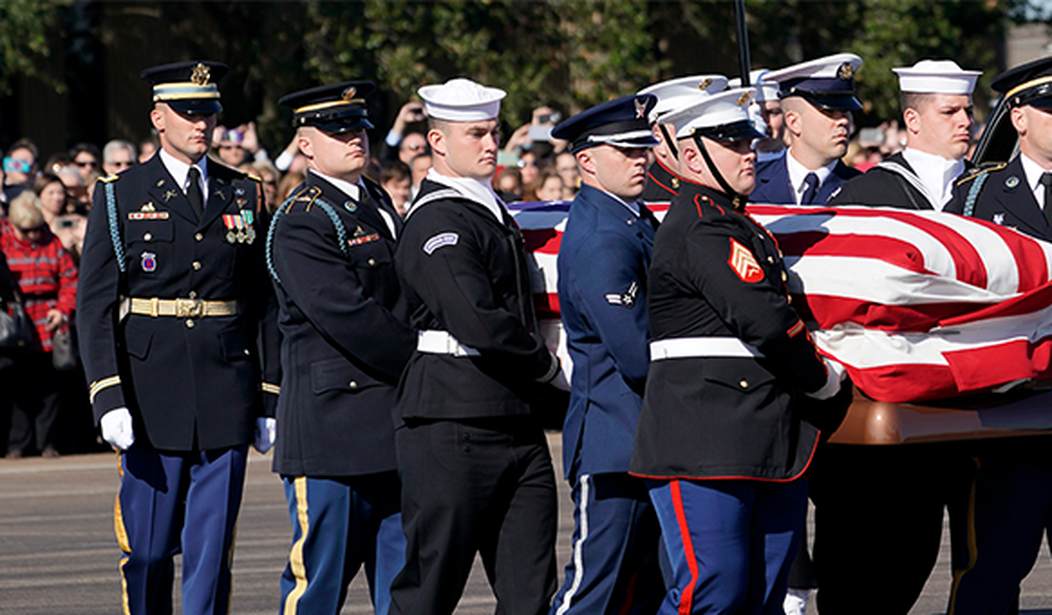Although military chaplains are forbidden from carrying arms, they have long been one of our nation’s most formidable weapons. But spurious legal attacks against chaplains are a vivid reminder that, as we celebrate the chaplain corps’ 244th birthday, we must remain vigilant in defending religious freedom within our armed forces.
In the summer of 1775, one of the first acts of the fledgling Continental Congress was to establish the U.S. Army and its first branch, the infantry. Shortly thereafter, on July 29, 1775, the Congress established the Army’s second branch, the chaplain corps, whose official motto is “Pro Deo et Patria,” meaning “For God and Country.”
For the past 244 years, tens of thousands of military chaplains across three service branches (the Navy provides chaplains for the Marine Corps) have ensured that our troops enjoy the free exercise of religion as guaranteed by the First Amendment to the Constitution. The question is whether the chaplain corps will be able to continue doing so in year 245, and beyond?
In recent years, First Liberty Institute has defended chaplains threatened with disciplinary action and even court-martial simply for staying true to their religious beliefs while also complying with military regulations. These legal attacks persist despite laudable efforts by President Donald Trump, the Attorney General, and Congress to protect religious liberty in the military.
While First Liberty has successfully defended several chaplains against these attacks, it is not enough to simply fight and win in the legal arena. The courtroom is the last line of defense for religious liberty; to truly protect it we must restore a culture of respect for the role of faith in society at large and within the military. One of the ways we can ensure our chaplains and other service members retain robust constitutional rights is by understanding why religious freedom in the military is important.
Recommended
Our government has long recognized that “if we expect our Armed Forces to be physically prepared, we must also expect them to be ideologically prepared.”
Moreover, our government acknowledges that religious freedom for service members “provides an essential way for strengthening their fundamental beliefs in democracy and, therefore, strengthening their effectiveness as an instrument of our democratic form of government.”
For two and a half centuries, chaplains have served to strengthen our military’s effectiveness. In military-speak, this makes chaplains a “force multiplier.” Few understood the concept better than George Washington.
Washington made known his convictions on the importance of religion within the military early in his career while serving as a young Colonel during the French & Indian War. Throughout that time, he repeatedly requested religious support for his troops, often to no avail. In fact, records show Washington made at least six separate pleas for chaplains. Each plea was rebuffed. It should come as no surprise that upon his ascendancy to the rank of general, one of Washington’s first orders was that chaplains would perform “divine services” for his troops.
America’s second Commander-in-Chief, John Adams, was no less insistent on promoting religious freedom in the military. Known as “The Father of the American Navy,” Adams’ presidency saw the U.S. Navy grow from its humble origins into a formidable fighting force capable of defending the fledgling nation’s vast coastline. Under his presidency, Adams instructed his Secretary of the Navy on the importance of establishing a chaplaincy.
Congress responded favorably to President Adams’ desire by establishing and providing for naval chaplains, and re-issuing the naval regulations it established during the Revolutionary War, requiring that “Divine Service” be performed twice each day aboard all naval vessels, and that a sermon be preached each Sunday.
Since the earliest days of our republic, military chaplains have been an essential part of our fighting forces. Two of America’s founders, both of whom were far too acquainted with war, understood the importance of chaplains and the free exercise of religious liberty in the military. Perhaps it is time we follow their example.
Mike Berry, a former active duty Judge Advocate in the U.S. Marine Corps, serves as Director of Military Affairs for First Liberty Institute, a legal organization dedicated to defending religious freedom for all Americans.
























Join the conversation as a VIP Member